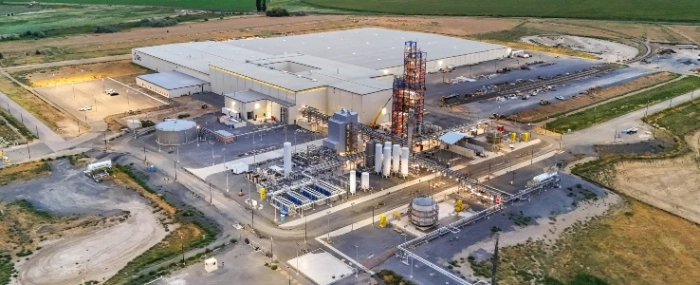
Sila opens automotive-scale silicon anode plant
Battery materials company Sila has started operations at Sila Moses Lake, its new automotive-scale silicon anode plant in Moses Lake, Washington, USA.
The team has begun testing and refining process recipes, and the plant will soon start producing initial batches of Titan Silicon, Sila’s Si/C silicon anode material for customer applications, including electric mobility, consumer electronics, drones, AR/VR, and satellites.
The new site is touted as a turning point for US energy independence. More than one million times larger than Sila’s first R&D line and spanning more than 600,000 square feet on a 160-acre site, the plant was engineered for scale from day one. Operations will initially support 2-5 GWh of capacity with the capability to expand up to 250 GWh within five years and become the largest anode production facility in the world.
By producing domestically at scale, Sila offers an alternative to graphite, a critical mineral largely sourced from China. The company’s Titan Silicon anode, developed over a decade of research, is designed to provide high energy density and faster charging, and can be adapted to meet the performance requirements of various battery-powered applications.
“This is not just about building a factory. It is about closing the gap between innovation and manufacturing in America,” said Gene Berdichevsky, CEO and Co-Founder of Sila, in a press release.
Although new battery assembly plants are increasing, US anode material production is still in the early stages. Sila Moses Lake aims to address this. The company is also working with regional colleges and vocational programs to train and hire up to 500 employees over the next three to five years, supporting local workforce development in advanced manufacturing.




